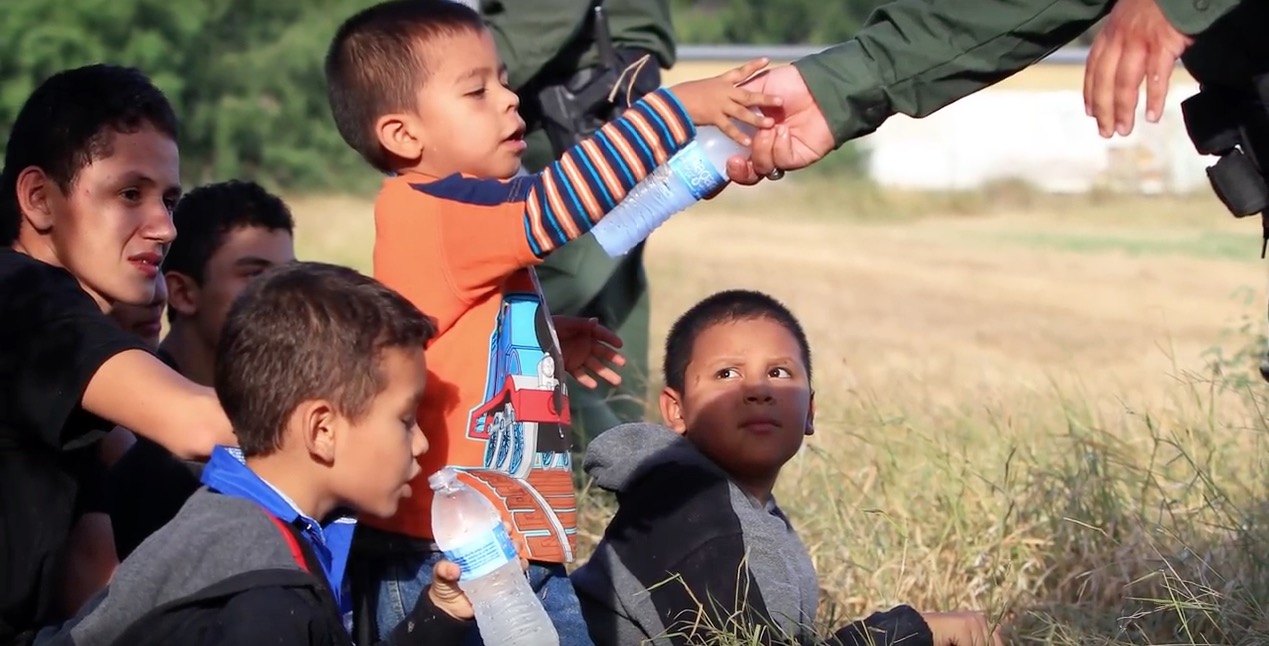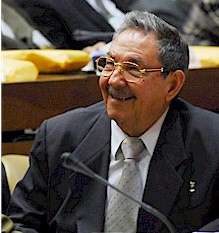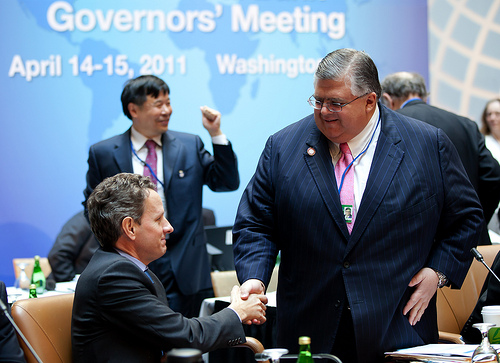
Dispatches, United States
Will The United States Change Its Approach To The War On Drugs?
June 14, 2011 By Molly OToole
Instead, according to UN estimates cited in the report, in the decade from 1998 to 2008, annual rates of consumption of drugs have rocketed up by 34.5 percent for opiates, 27 percent for cocaine and 8.5 percent for Cannabis. As of 2008, there were more than 17 million opiates and cocaine users, and 160 million consumers of cannabis.
For many, we are further from the ultimate objective of the 1961 UN Convention — the improvement of the “health and welfare of mankind” — than ever before.
Colombia is often cited as a successful example of the “War on Drugs” strategy. Ravaged by cartels and violence from the drug trade, the Colombian government adopted the U.S.-recommended “Plan Colombia,” and was able to regain control. But, as former president Gaviria pointed out Thursday, the hydra drug war has not ended, just sprouted more heads.
According to The Economist, nearly all the world’s cocaine is still produced in Colombia, Peru and Bolivia. Nearly all of it is consumed in the U.S., where a kilo will start at $12,500, wholesale, though prices have also been pushed higher by pressure on Mexican drug trade routes. The main market route shifted from Colombia-Florida, across the Caribbean, to the Pacific Coast of Mexico, but pressure there as well is pushing the trade into other Central American countries. As Commission members noted, this pressure and payment in drugs rather than cash are also contributing to the first significant drug use inside these countries as well, and the disturbing development of a local trade.
The global drug trade is valued at trillions of dollars, and not just from cocaine — Mexican officials think that almost half of the cartels’ billions of dollars of annual revenue come from marijuana. But attempts to eradicate this trade have cost United States alone $1 trillion, not to mention tens of thousands of lives. Within our borders, the current size of the U.S. prison population — more than 2.3 million — is directly related to the “War on Drugs” and overwhelmingly made-up of people of color.
Yet, thus far the country that created many of the drug policies that have since been exported and enforced around the globe has been resistant to the calls of the Commission, despite the oft-cited fact that the United States is the biggest market in the world for drugs.
“Every time somebody in the U.S. snorts cocaine, they’re effectively contributing to the death of a Mexican,” said Richard Branson, an entrepreneur and public advocate.
It is for this reason that several of the Commissioners believe the United States is fundamentally responsible for effective drug policy — both international and domestic.
Internationally, the United States has given billions in aid to foreign governments to adopt similar policies to the “War on Drugs” within their own borders, with at least $1.6 billion going to Mexico since 2008 through the Merida Initiative.
“Mexico is making an extraordinary effort, and they should be helped on that,” Gaviria said in an interview Thursday at the Waldorf. “But at the same time I think they have the right to ask the U.S. to look at the policy and see if it’s effective.”
Frustration with these failures is feeding a growing movement for drug policy reform. Mexico has become one of the latest of Latin American countries to join, decriminalizing possession of small amounts of cannabis, cocaine, heroin and other drugs in 2009 — much to the chagrin of the United Nations international drug enforcement body, the International Narcotics Control Board. Argentina’s Supreme Court has ruled that punishing the personal use of cannabis is unconstitutional.
The three former presidents and Commission members — Gaviria, Cardoso, and Zedillo — have all argued that decriminalization would undermine the major source of income for cartels that still ravage the region, and that the prohibition of drugs fuels violence while not stopping consumption.
According to the Commission’s report, the starting point for effective policy must be “the recognition of the global drug problem as a set of interlinked health and social challenges to be managed.”
The report highlights several examples of countries that have adopted this approach, and have proven successful.
In 2001, Portugal became the first European country to decriminalize the use and possession of all illicit drugs, and met much criticism by those who believed it would lead to even greater drug use and the problems associated with it. But subsequent studies have shown that decriminalizing drugs, while combining this strategy with therapy, reduced the burden on law enforcement and overall levels of drug use.
Similar criticisms continue to be voiced in the U.S., though interest in alternative policies such as these has grown, as seen in a California ballot initiative to legalize marijuana last November.
About Molly OToole
Molly O’Toole has worked for a dozen publications, from Los Angeles Magazine and USA Today to current contributions at Newsweek International and The Associated Press. She most recently returned from three months in Mexico City, working for the AP and on her thesis about U.S.-Mexico relations. Molly earned her M.A. from New York University in the global joint master's program for journalism and International Relations. She graduated cum laude from Cornell University and is a native of San Diego, California.






4 Comments
An important aspect of Individual freedom is the right to self-medicate, or to do with yourself as you please as long as your actions cause no unnecessary suffering or direct harm to others. Some among us may disagree with this, and they should be free to believe what they wish. But the moment they are willing to use force (paid for with our own hard-earned taxes) to impose their will on the rest of us, is the exact same moment that the petty criminals/dealers, the Mafia, drug barons, terrorists and corrupt government officials/agencies enter the equation. The problems created by any possible self-harm then rapidly pale into insignificance as society spirals downwards into a dark abyss, while the most shady characters and black-market corporate entities exponentially enrich themselves in a feeding frenzy likened to that of piranhas on ‘prohibition engendered’ bath-tub meth.
Every-time the ghastly consequences of prohibition are falsely blamed on the users, it diminishes the culpability of those who are truly responsible for maintaining the status quo. Prohibition is an absolute scourge -the end! The use of drugs is NOT the real problem, the system that grants exclusive distribution rights to violent cartels and terrorists IS.
When governments prohibit drugs they effectively and knowingly hand a monopoly on their sale to dangerous criminals and terrorists. Without a legal framework in which to operate, these black-market entities can always be expected to settle their disputes violently, while terrorizing many peaceful and innocent citizens in the process. Were the users of alcohol to blame for the St Valentines massacre in 1929? Of course not! It is just as naive to assume that one can compel all the users of Marijuana or Cocaine to simply quit, as it is to assume that all the users of Alcohol should have stopped drinking after the introduction of alcohol prohibition in 1919.
Nobody can be expected to obey bad laws, like ones that infringe on logic as well as the fundamental right to decide on what medicine or poison an individual adult may, or may not, ingest. The corruption, violence and death ultimately arising from such bad public policy should always rest squarely on the shoulders of those ignorant imbeciles who are responsible for implementing and supporting such foolishness.
Prohibition is nothing less than a grotesque dystopian nightmare; if you support it you must be either ignorant, stupid, brainwashed, insane or corrupt.
I vote to completely remove drug prohibition and apply a regulatory structure similar to alcohol.
I have not heard of a single reason as to why drug prohibition should remain.
That’s my vote!
I have little to add to Malcolm Kyle’s excellent comments (love that analogy to the St. Valentine’s Day massacre) except to toot my horn, if I may, by saying that the Council on Hemispheric Affairs recently said some very nice things about my book, Letter to a Prohibitionist, a revised edition of which just went up at Amazon.com only a couple of hours ago (you can read the COHA blurb there).
Yes, the possibility of self-harm pales in comparison to the violent underground market created by Prohibition II. American sure love sequels — and there’s no question that Prohibition II, a sequel that now spans the world (but created in the United States) is worse than the first installment from the 1930s. And as for any tender-hearted readers who may object to his anger, Kyle’s “ignorant imbeciles” is not too strong a term to describe prohibitionists. It’s perfect, actually.
Living near Juarez, the most violent city in the world, and a microcosm of the worst aspects of the ‘war on drugs,’ it becomes more evident every day that the punitive paradigm guiding American drug policies is an absolute failure. Politics play an important role here, just as corruption in Mexico greases the machinery of the protracted campaign of president Felipe Calderon’s misguided war. The surge in deaths, to the tune of 40,000 since Calderon’s mimicry of Richard Nixon began in 2006, are undeniable evidence of a poorly premised strategy. Agencies under the auspices of Homeland Security have only one answer, and that is to continually raise budgets. All the while their effectiveness diminishes, and the police state they have built in the borderlands does nothing more than exacerbate resentment. Remove the profit incentives, and the cartels will be toast. A great quote from the movie ‘Traffic,’ says: “If there is a war on drugs, then many of our family members are the enemy. I don’t know how you wage war on your own family.” By turning the Mexican military on the civilian population, that is precisely what Calderon has done. Nixon, Reagan, and Bush Sr. did the same thing, creating a war with no strategy for its ending.
Comments are closed.